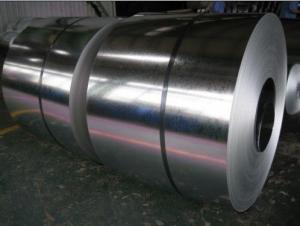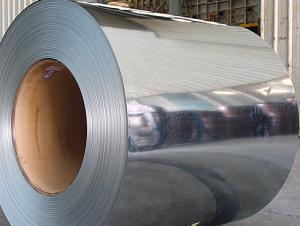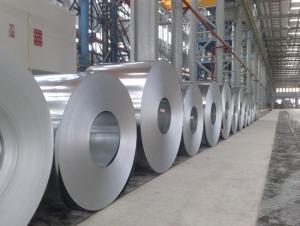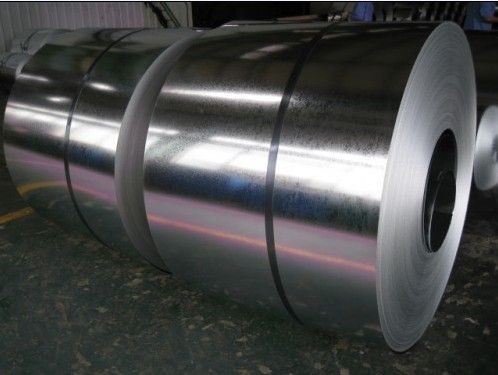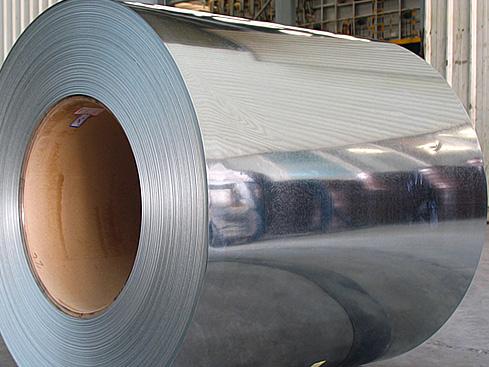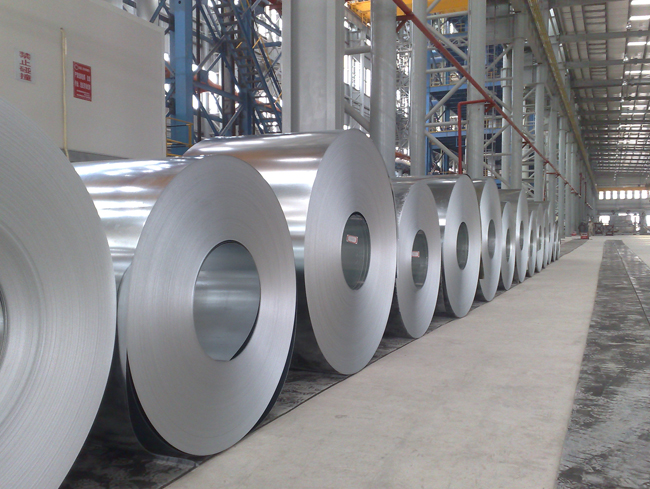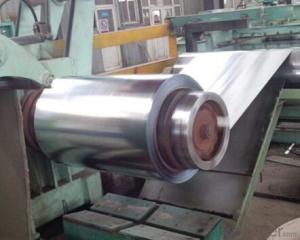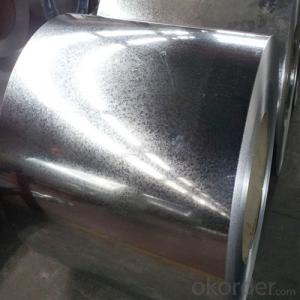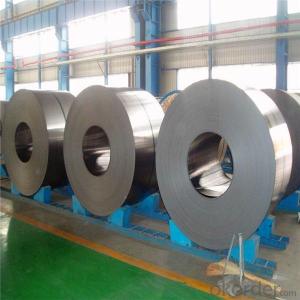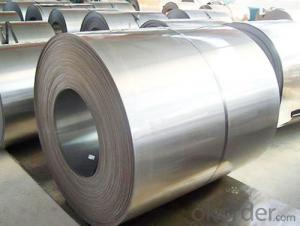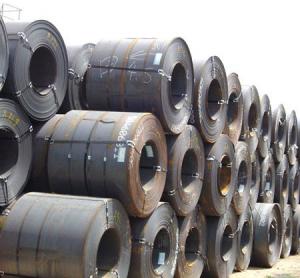Structual Quality Hot Dipped Galvanized Steel Coil
- Loading Port:
- China Main Port
- Payment Terms:
- TT OR LC
- Min Order Qty:
- -
- Supply Capability:
- -
OKorder Service Pledge
Quality Product, Order Online Tracking, Timely Delivery
OKorder Financial Service
Credit Rating, Credit Services, Credit Purchasing
You Might Also Like
1. COMMODITY : HOT- DIP GALVANIZED STEEL SHEET IN COIL
2. SPECIFICATION: AS1397 G450, Z275, REGULAR SPANGLE, CHROMATED, ANDUNOILED.
3. SIZE / QUANTITY / UNIT PRICE:
ZINC-COATED | MOQ (MTS) | FOB PRICE (USD/MT) | TOTAL AMOUNT (USD) | |
Z275 | 80 | 820 | 53,300.00 | |
2.40 X 1060 X C | Z275 | 80 | 820 | 45,100.00 |
2.40 X 1219 X C | Z275 | 80 | 820 | 41,000.00 |
3.00 X 635 X C | Z275 | 80 | 820 | 41,000.00 |
3.00 X 1060 X C | Z275 | 80 | 820 | 41,000.00 |
COIL ID: 610MM
COIL WEIGHT: 9-15MTS
PAYMENT: 100% LC AT SIGHT OR T/T WITH 20% DOWNPAYMENT & BALANCE AGAINST INVOICE & PACKING LIST
CARGO READNIESS: 50 DAYS AFTER LC ISSUING DATE OR T/T DOWNPAYMENT
SHIPMENT: BY BREAK BULK VESSEL
VALIDITY: 3 WORKING DAYS
- Q: I just purchased this Benchmade knife with m390 steel blade and it cost me a fortune but I wanted to know if this new steel is a tool steel. what classifies a tool steel. M390 = 1.9 carbon, 20. chromium, .30 manganese, 1. molybdenum, .60silicon, .60 tugsten, 4. vanadium at 60-62 HRC
- Which has better songs - Number Of the Beast Which has better riffs - British Steel Which has better solos - Number of The Beast Which has better vocals - Number of the Beast Which has a cooler cover - Number of the Beast Which do You prefer - This is a real thinker, almost like Sophies Choice Metal edition. But I have owned Number and the Beast longer than I have owned British Steel. So I go with Iron Maiden Both albums get a perfect 10 because they deserve it, both have great musicianship and both have great vocals
- Q: I'm getting microdermals, from a very experienced piercer, but they don't have titanium and I know titanium is the best for this, but is Grade A Srugical Steel okay too?(P.S. also instead of getting flat heads, of the microdermals, I'm getting flat crystal like ones, are those okay? I know to be careful, I am veryyyy careful with my body, so much that I'm worried I'm going to overly do it when I get them and dry out the skin or something hahaa xp)THANK YOU ALL IN ADVANCE FOR THE HELP
- Well a lot of people get microdermals done with surgical steel,yes titanium if better but it can be done with surgical steel.If you want the titanium you can always ask the piercer where they get their jewelery and if they could order them for you.You could also go to a different shop and ask if they have titanium dermals you should be able to buy them off of them.If hes an expensive piercer and your paying a lot for them you should be able to get the ones YOU want.Its YOUR body not theirs. =] hope this helped.
- Q: What is the maximum length of a steel coil?
- The maximum length of a steel coil can vary depending on various factors such as the type of steel, manufacturing capabilities, and transportation logistics. However, in general, steel coils can be several hundred meters long, with some specialty coils exceeding a kilometer in length.
- Q: How are steel coils inspected for color consistency?
- Steel coils are inspected for color consistency using a variety of methods to ensure that the final product meets the desired specifications. One common method is visual inspection, where trained inspectors examine the steel coils under controlled lighting conditions to detect any variations in color. This is done by comparing the color of each coil to a standard color chart or a previously approved sample. Any discrepancies are noted and further analysis is conducted. Additionally, advanced technologies such as spectrophotometers may be employed to measure the color of the steel coils objectively. Spectrophotometers use light to measure the reflective properties of the steel surface, allowing precise color analysis. The obtained color data is then compared to the specified color range, and any deviations are flagged for further investigation. Furthermore, some manufacturers may use automated color measurement systems, such as colorimeters or color cameras, to inspect steel coils for color consistency. These systems can quickly and accurately assess the color of each coil, ensuring uniformity across the entire batch. Overall, the inspection of steel coils for color consistency involves a combination of visual inspection, spectrophotometry, and automated color measurement systems. This comprehensive approach helps to guarantee that the steel coils meet the required color standards, providing consistent and high-quality products to customers.
- Q: Is there any noticable or perceived difference between smoking out of a pipe with a brass screen and a stainless steel screen?
- Stainless Steel Pipe Screens
- Q: Aluminum alloy rolling doors and color steel shutter door that good
- Among them, aluminum alloy rolling doors and ordinary rolling doors, both from the appearance, environmental protection or safety, have considerable advantages. Aluminum Alloy doors can be sprayed on the surface of various colors and patterns, but also with the concavity of the wood, sand grain coated, highlight the noble temperament, improve grades, if it is used in shops, you can let your talent shows itself in many shops in the.
- Q: The steel is orangish in colour and is mostly made of copper
- Steel is an alloy of iron and carbon and optionally one or more of numerous other materials. Copper is normally not used, except sometimes in small percentages. Steel is never yellow or orange in color. Reactivity of steel depends on the materials it is alloyed with. Chromium and nickel with steel make stainless steel, which is much less prone to reactive than iron. .
- Q: How are steel coils processed for slitting or edge conditioning?
- Steel coils are processed for slitting or edge conditioning through a series of steps. First, the coils are uncoiled and fed into a slitting machine, where circular blades cut the coil into narrower strips. These strips are then rewound into smaller coils, ready for further processing. For edge conditioning, the strips are passed through a machine that trims and smoothens the edges, ensuring they are free from any sharp or rough edges. This process enhances the safety and usability of the steel strips for various applications.
- Q: i am working a client.my vendor specified in pipe specification pipe line class as MS1 (code for Mild steel)but assigned material to this code is cs smls astm A 106B.my question is any difference between CS and MS material?pls suggest me
- *Carbon steel, also called plain carbon steel or Mild Steel, is steel where the main alloying constituent is carbon. The AISI defines carbon steel as: Steel is considered to be carbon steel when no minimum content is specified or required for chromium, cobalt, columbium, molybdenum, nickel, titanium, tungsten, vanadium or zirconium, or any other element to be added to obtain a desired alloying effect; when the specified minimum for copper does not exceed 0.40 percent; or when the maximum content specified for any of the following elements does not exceed the percentages noted: manganese 1.65, silicon 0.60, copper 0.60. If it crosses limit as said, it will come under alloy steel. ASTM A 106 gr B is a carbon steel pipe and seamless Pipe for High Temperature Service. So, it will be a mild steel comes under carbon steel category.
- Q: What are the guidelines for handling damaged steel coils?
- The guidelines for handling damaged steel coils include assessing the extent of the damage, ensuring proper storage conditions, using appropriate lifting equipment, and implementing safety measures to prevent injuries or further damage. It is crucial to follow manufacturer recommendations and consult with experts in the field for specific guidelines based on the type and severity of the damage.
Send your message to us
Structual Quality Hot Dipped Galvanized Steel Coil
- Loading Port:
- China Main Port
- Payment Terms:
- TT OR LC
- Min Order Qty:
- -
- Supply Capability:
- -
OKorder Service Pledge
Quality Product, Order Online Tracking, Timely Delivery
OKorder Financial Service
Credit Rating, Credit Services, Credit Purchasing
Similar products
Hot products
Hot Searches
Related keywords
